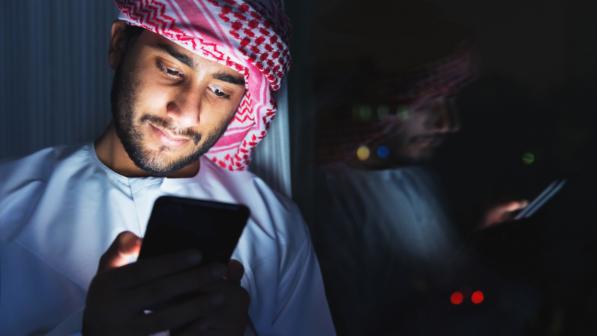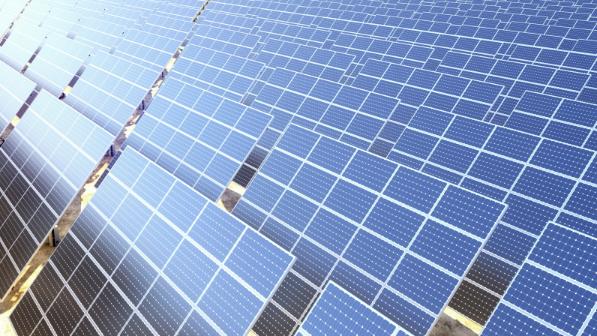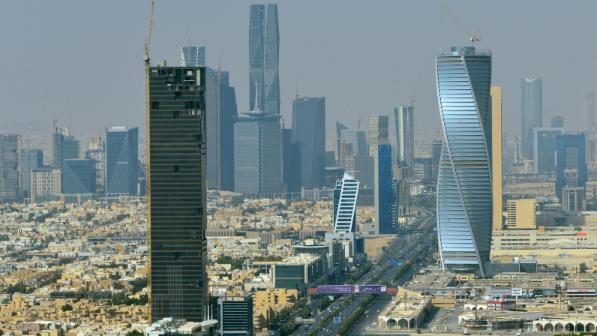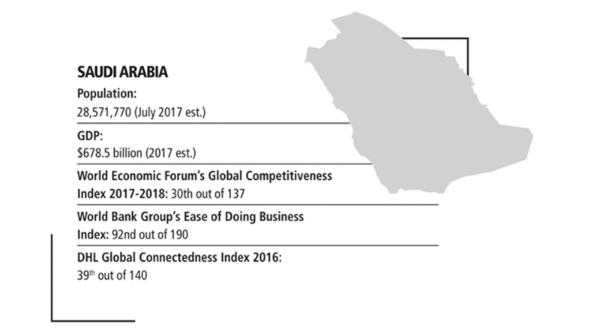"I now celebrate September 26 in the same way as my birthday," says Bashayir Al Barrak. The marketing executive, based in Al Khobar in Saudi Arabia's Eastern Province, was barely able to believe Saudi TV's news bulletin on September 26, 2017, declaring that women would be allowed to drive in the kingdom from June 2018. "Even the following day my family and I still kept asking ourselves whether it was really true. Being able to drive had been a dream of mine, but it had always seemed a very distant one, and it therefore took some time to fully understand that it would now become a reality."
For Al Barrak, being able to drive has a simple, pragmatic advantage: "I am able to become fully independent and take myself everywhere I need to be, without having to use a driver or ask one of my male relatives to take me," she comments. For her and many of her fellow countrywomen, driving, and a host of other reforms, such as a partial end to the restrictive male guardianship system that puts restrictions on females traveling, taking a job or opening a business without male guardian permission, are now opening the gates to success on many levels - and businesses are taking note.
Thanks to generous education and scholarship programs, many Saudi females are highly educated and are now poised to prove their mettle in the marketplace and become a force to be reckoned with.
Previously, females represented a small portion of employees. However, in 2017, the Saudi Ministry of Labor and Social Development announced a 130 percent rise of women in the private sector workforce over four years, with women accounting for 30 percent.
"We Saudi women currently make up around a quarter of the local workforce; with the lift of the ban on women driving, we are sure to see this number increase exponentially," says Marriam Mossalli, owner of Niche Arabia, a luxury consulting firm that she started in Saudi Arabia in 2012. "These social changes are having real effects on our economy, and as a female entrepreneur, I'm excited to see how this injection of more women is going to shape policies going forward."
At DHL Express, Faysal El Hajjami, Country General Manager, is poised to double the number of female employees. "We started in 2008 with some five ladies, working in areas such as telesales and customer service," he comments. "The ladies proved to be very dedicated, skilled and highly productive, so we steadily increased numbers, and this year we have 100 ladies working for us. We intend to double that number before the end of the year, and we are already steadily moving Saudi women up the ranks. With all the support Saudi females are now getting through government reforms, coupled with the energy and drive many are displaying, we have seen a number of our female colleagues joining middle management, driving and shaping the business direction in many functions. I am confident that they will soon join the Senior Management Team at Express Saudi Arabia."
Entrepreneurship is another area where women are now steadily making their mark. A study by Arab daily Al Eqtisadiah revealed that in 2017, 39 percent of the total number of entrepreneurs in the kingdom were female, up 35 percent over the past 10 years thanks to government and private support.
Driver of change
Much of the current change in Saudi Arabia is accredited to "MBS," as many Saudis call their Crown Prince, Mohammed bin Salman Al Saud. Appointed by his father King Salman, Custodian of the Two Holy Mosques, the 32-year-old oversees Vision 2030, a roadmap designed to transform the conservative kingdom into a modern nation that diversifies away from its traditional revenue source, oil. In his quest to transform the country, MBS has curbed the powers of conservative Muslim clerics and Saudi's religious police, vowed to fight radical extremism, changed many laws restricting the freedom of women and announced a raft of megaprojects, such as the $500 billion megacity Neom, a 26,500-square-kilometer development by the Red Sea, intended to have its own laws and economic conditions.
If all this sounds rather dreamlike, that could be the intention: "We try to work only with the dreamers," the Crown Prince told investors at a conference in Riyadh, according to CNN Money. "This place is not for conventional people or companies."
To back its dreams, however, the kingdom needs funding. Low oil prices and three years of military involvement in Yemen have dented the wealth held in government coffers. Much is therefore being done to attract foreign investors, such as an anti-corruption drive that saw many Royal Princes and other officials put under "house arrest" and released only after relinquishing billions of their wealth that was supposedly gained from corrupt practices. However, funding is also set to come in the form of an IPO of 5 percent of the jewel in Saudi's crown, Saudi Aramco, the state-owned oil and gas company that has the world's second-largest proven crude oil reserves, more than 260 billion barrels.
The Saudi government expects the IPO to bring some $100 billion into its coffers, though, despite much speculation, both the timing and location of the offering have not yet been confirmed. According to the Wall Street Journal, a timeline of 2019 and the Saudi stock exchange Tadawul, as its "home exchange," are likely options.
With the income from the IPO, plus the introduction of a host of measures such as the recent implementation of a 5 percent VAT levy, Mohammed bin Salman intends to create the world's largest sovereign wealth fund and use its funds to speed up the country's transformation and its reliance on income from fossil fuels.
On recent trips to Egypt, the U.K. and the U.S., Mohammed bin Salman turned to the business community to make the case for investments. U.K.-centered deals comprised some 18 economic agreements, to the tune of around £1.5 billion ($2 billion), between Saudi and British entities. These include an MOU between health care giant AstraZeneca and Saudi Pharmaceutical Industries & Medical Appliances Corporation, for an $80 million investment to deliver local manufacturing of AstraZeneca pharmaceutical products to provide some 3 million Saudi patients with medication for diabetes, cardiovascular and gastrointestinal issues. In the U.S. meanwhile, MOUs were signed with companies such as Microsoft and Cisco, and a deal with Softbank was agreed to finance the world's largest solar development. Two solar plants with capacity for 3 gigawatts and 4.2 gigawatts are to be launched by 2019 and they will eventually have the capacity to produce 150 gigawatts and 200 gigawatts of solar power by 2030.
Why go looking for the latest logistics trends and business insights when you can have them delivered right to you?
Rapid reforms
Changes and reforms are moving at a rapid pace, especially given the very conservative nature of the kingdom. And yet many Saudis appear keen to follow their government's lead and embrace change.
Mohammed Al Awadhi, CEO of real estate investment group Maban and Saudi partner of Microsoft, regards the progress in the country as much needed, even when it comes to the introduction of VAT.

"The drive to stamp out corruption, bring on reforms and also introduce international financial instruments such as VAT, is important, as it elevates Saudi Arabia internationally. In order to move the country forward, we need solid control over what businesses produce and sell, which VAT will help with. In addition, dynamic and transparent business practices in line with global standards, and reforms that open up the labor market and help businesses attract more Saudi talent, especially by tapping into the pool of keen and well-educated women, will without doubt allow business in the kingdom to thrive."

El Hajjami also sees many opportunities for businesses: "At DHL we're seeing an upturn in business, for example in the area of e-commerce, with a lot of trade in international goods by young Saudi entrepreneurs and SMEs, but also through online platforms such as Souq, which was recently purchased by Amazon. Going forward, I believe that there are opportunities out there for businesses from all sectors. The automotive industry should experience a real boost, with many women drivers wanting to purchase cars, and investment in large infrastructure projects will present a boon to the construction industry and manufacturing."

Logistics performance
Logistics will play a key role in Saudi's move to diversify. Vision 2030 aims to raise the kingdom's global ranking in the Logistics Performance Index from 49 to 25, and ensure the country is a regional leader and builds a position as a regional logistics hub connecting three continents. To enable this, Saudi plans to "work with the private sector and enter into a new series of international partnerships to complete, improve and link our infrastructure internally and across borders."
Sabine Mueller, CEO, DHL Consulting, believes the opportunities are there for the kingdom: "Saudi Arabia has a strategic location on the Red Sea and a substantial consumption base. With significant investments in Special Economic Zones, global partnerships in logistics infrastructure and easing customs regulations, I believe that the country is well positioned to develop as a regional logistics hub to serve the Middle East and Africa."
With some 60 percent of Saudi Arabia's population under 30, it is the young generation that Mohammed bin Salman looks to when it comes to bringing the government's Vision 2030 to life. He terms it Generation 2030 - young women and men who are embracing change with open arms, keen to grab the opportunities that are now opening up for them everywhere. From cheering teams at the sports stadium to setting up businesses and excelling in industries such as technology and medicine, young Saudis are eager to move ahead.

For Bashayir Al Barrak, the road ahead is all clear: "I have always been proud of my country, but now, as so much is changing for me and all other women in the kingdom, and as our country opens up in so many ways, I am very excited and optimistic about the progress that we in Saudi Arabia will make. I for one am ready to step out into the world and show what Saudi women can achieve." — Michelle Bach
Published: June 2018
Neom
Focusing on nine specialized investment sectors (energy and water, mobility, biotech, food, technological & digital sciences, advanced manufacturing, media, and entertainment), Neom is a megacity project that will be backed by $500 billion of investment by the Kingdom of Saudi Arabia. The focus on industry sectors is intended to stimulate economic growth and diversification, and drive local industry, job creation, and GDP growth in the kingdom. To be located in the northwestern region of Saudi Arabia, Neom will span 26,500 square kilometers, overlooking the waterfront of the Red Sea to the south and west and the Gulf of Aqaba, and boasting an uninterrupted coastline stretching over 468 kilometers.
Saudi Aramco
Saudi Arabia's state-owned oil company is a fully integrated, global petroleum and chemicals enterprise. The world's largest crude oil exporter manages proven conventional crude oil and condensate reserves of 260.8 billion barrels. Aramco's average daily crude production is 10.5 million barrels per day (bpd), and the company has stewardship of natural gas reserves of 298.7 trillion standard cubic feet (scf). Analysts value Saudi Aramco at several trillion dollars, making it the most valuable company in the world.
Images: Summer Ameen for Delivered; iStock






